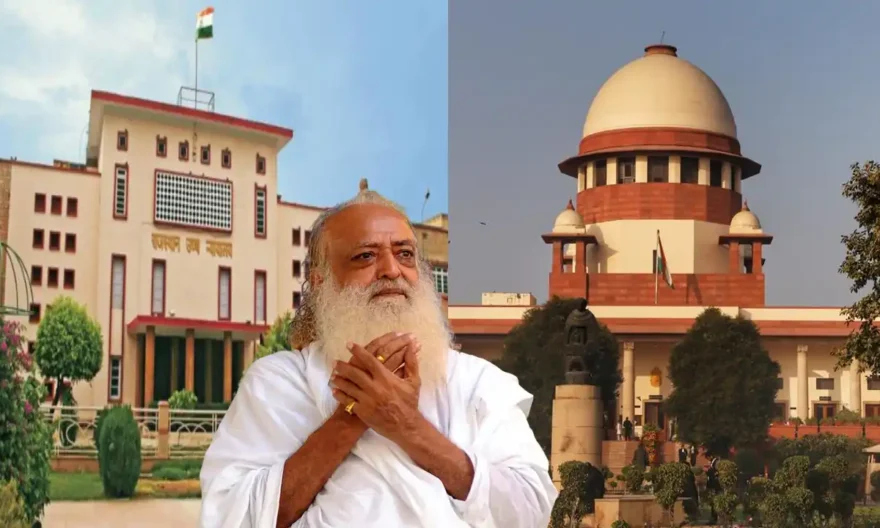
The Supreme Court on Monday granted the State of Rajasthan’s Special Leave Petition (SLP) which challenged the High Court’s order summoning IPS Officer Ajay Pal Lamba in connection with an appeal by Asaram Bapu in a rape case.
In 2018, a lower court sentenced Asaram to life in prison for raping a minor at an ashram in Jodhpur in 2013.
A bench of Justice Sanjiv Khanna and Justice M.M. Sundresh asked the Rajasthan High Court to take up Asaram’s appeal for hearing expeditiously.
“We have allowed the appeal and set aside the impugned judgment. We request the High Court to take up the appeal for hearing expeditiously.”
Asaram’s appeal against his conviction is currently pending in the High Court, in which he claims that the entire prosecution case is false and fabricated. Eventually, an application was filed to summon Mr. Lamba, alleging that the victim was tutored based on some videos of the crime scene that he shot. According to the application, the claim can be substantiated by the accounts mentioned in Mr. Lamba’s book Gunning For The Godman: The True Story Behind Asaram Bapu’s Conviction. The High Court granted the application after hearing arguments on it. While issuing notice, the Supreme Court stayed the Rajasthan High Court’s order.
The High Court order reads,
“Due to the fact that it was captured during the first police officer’s visit to the crime scene, the video would unquestionably be an important piece of evidence. At the trial, Shri Lamba was not questioned about the evidence… Now that the book mentioned above has been published, the defense is free to assert that video of the crime scene was unquestionably recorded, which fact is enough to persuade the court that it is imperative to use the authority under Section 391 Cr.P.C. to summon and examine Shri Ajay Pal Lamba as a court witness in this case while granting the defence access to cross-examination.”
Appearing for the state government, Senior advocate Manish Singhvi contended that the book’s disclaimer explicitly states that it is a dramatized version. He claimed that the High Court’s application was solely supported by fictitious justifications. Mr. Singhvi expressed his worry that Asaram was attempting to have his conviction overturned on the basis of the book.
Appearing for Asaram, Senior Advocate Devadutt Kamat argued that there were inconsistencies in the FIR, statements made on the 19th and 20th of August, 2013, and the police statement recorded in Jodhpur on the 21st of August, 2013.
The description of the room appears to have appeared for the first time in the police statement. He claimed that the survivor was shown a video of the room taken by Mr. Lamba, the then-DCP (West), Jodhpur, and that as a result, she was able to provide a vivid description of the crime scene in her police statement.
He emphasized that the Trial Court had dismissed Asaram’s submission, citing a lack of evidence to show that the video was indeed shown to the survivor. He insisted that under Section 391 Cr.P.C., when a court is considering new evidence, Asaram should be able to rely on the evidence at hand. He cited the Supreme Court’s decision in Zahira Habibullah Sheikh v. State of Gujarat (2004) to argue that under Section 391, it is only necessary to demonstrate that the evidence is relevant. He also claimed that the State bears the burden of demonstrating that the additional evidence is irrelevant.




